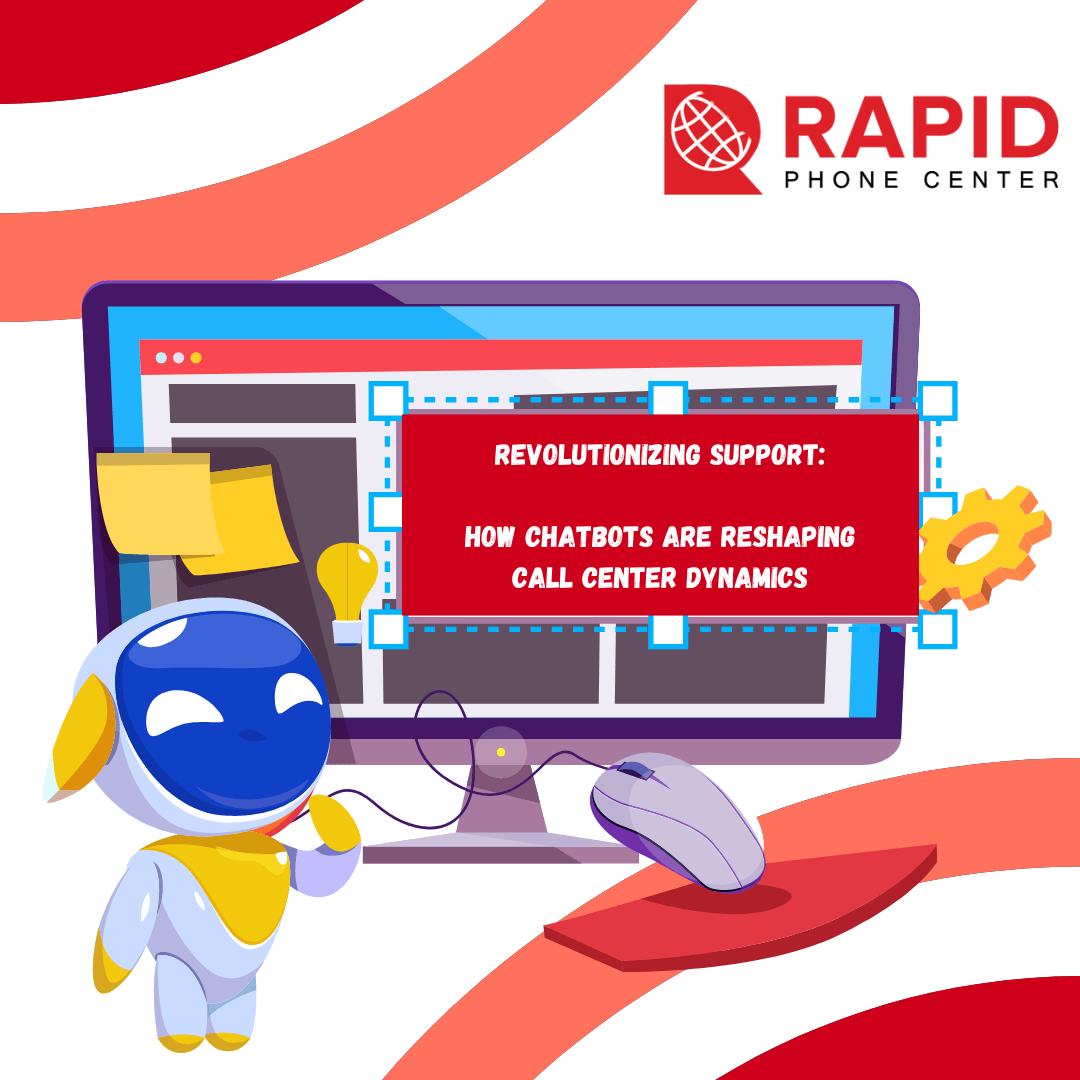Revolutionizing Support: How Chatbots and Rapid Phone Center are Spearheading Call Center Dynamics

Revolutionizing Support: How Chatbots and Rapid Phone Center are Spearheading Call Center Dynamics
In the fast-paced world of customer service, call centers must lead the charge to remain competitive. As businesses grapple with increasing consumer demands, leveraging technology to streamline operations and enhance customer experience has become imperative. Among the forefront innovations transforming support and reshaping call center dynamics is the advent of chatbots, alongside our pioneering Rapid Phone Center initiatives.
Long gone are the days of navigating through convoluted phone menus or enduring endless wait times. Chatbots, driven by artificial intelligence (AI) and natural language processing (NLP), offer an efficient and personalized avenue for addressing customer inquiries and resolving issues promptly.
An undeniable advantage of chatbots is their 24/7 availability, ensuring customers receive assistance whenever they require it, irrespective of time zones or business hours. This accessibility not only boosts customer satisfaction but also reduces wait times and lightens the workload of human agents, allowing them to tackle more intricate tasks.
Moreover, chatbots excel in delivering consistent and precise responses, mitigating the risk of errors or miscommunication inherent in human interactions. By harnessing machine learning algorithms, chatbots continuously learn from customer interactions, evolving and refining their capabilities over time. This iterative learning not only enhances service quality but also enables call centers to anticipate and proactively address customer needs.
Additionally, chatbots offer scalability and cost-efficiency, making them an attractive solution for call centers of all sizes, particularly within the framework of our Rapid Phone Center initiative. Unlike traditional call centers with our hefty infrastructure and personnel requirements, chatbots can effortlessly scale up or down in response to demand fluctuations, ensuring seamless support without incurring additional costs.
However, amidst the myriad benefits, chatbots bring, striking a balance between automation and human touch is paramount. While chatbots excel in handling routine inquiries, there are situations where human empathy and problem-solving skills are indispensable. Therefore, integrating chatbots into call center workflows demands a strategic approach that enhances human capabilities rather than supplanting them entirely.
In conclusion, the rise of chatbots represents a monumental shift in customer support, fundamentally altering call center dynamics and redefining business-customer interactions. As we navigate the evolving landscape of customer service, it’s evident that embracing technological innovations, like chatbots and our Rapid Phone Center initiatives, is key to driving operational excellence and enhancing customer satisfaction.
The advantages presented by chatbots are unequivocal. Their round-the-clock availability, consistent responses, and scalability make them indispensable assets for call centers. Moreover, their integration of AI and NLP enables continuous learning and proactive support, empowering businesses to anticipate and meet customer needs effectively.
Yet, amidst this tech-driven transformation, maintaining a human touch remains essential. While automation enhances efficiency, it’s human empathy that fosters genuine connections and builds enduring relationships with customers. Thus, successful integration of chatbots necessitates a strategic approach that enriches human capabilities rather than replaces them outright.
In essence, chatbots epitomize the fusion of technology and humanity, where each reinforces the other to deliver unparalleled customer experiences.
By embracing this synergy, call centers can not only meet evolving consumer needs but also position themselves as pioneers in customer service innovation. As we continue to evolve and adapt, the future of support shines brightly, driven by our unwavering commitment to excellence and customer satisfaction.




